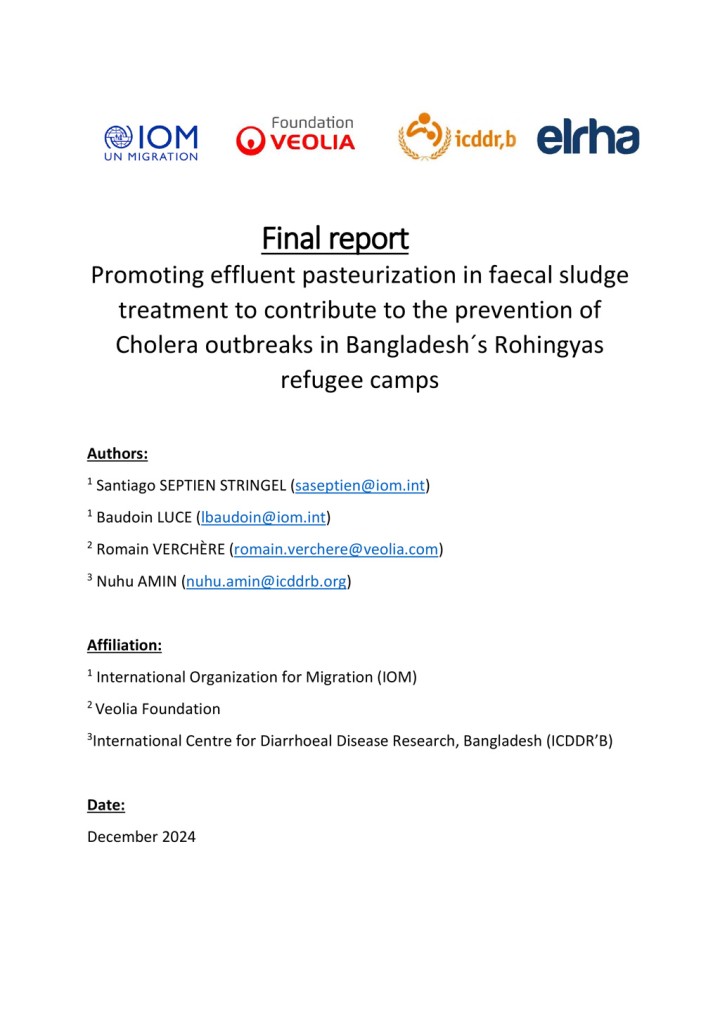Promoting Effluent Pasteurization in Faecal Sludge Treatment to Contribute to the Prevention of Cholera Outbreaks in Bangladesh´s Rohingyas Refugee Camps Santiago Septien Stringel, Baudoin Luce, Romain Verchère, Nuhu Amin (2024)
This paper presents a solar-powered pasteurisation system designed to improve sanitation and reduce disease in refugee camps. Focusing on the Rohingya camp in Bangladesh, the study explores the system's ability to treat wastewater, deactivate pathogens, and operate sustainably. Field results, technical challenges, and potential for broader application in other humanitarian settings are discussed, highlighting solar energy's promise for safe, scalable sanitation solutions.
Bibliographic information
Santiago Septien Stringel, Baudoin Luce, Romain Verchère, Nuhu Amin (2024). Promoting Effluent Pasteurization in Faecal Sludge Treatment to Contribute to the Prevention of Cholera Outbreaks in Bangladesh´s Rohingyas Refugee Camps International Organization for Migration (IOM), Veolia Foundation, International Centre for Diarrhoeal Disease Research, Bangladesh (ICDDR’B)
Filter / Tags
Rural areasHealth and hygieneProduct design and engineeringWaterHygieneWasteSanitationTreatment of wastewater or greywaterTreatment of faecal sludgeFaecal sludge treatment processesResearch publicationsEnglish
Downloads
Promoting Effluent Pasteurization in Faecal Sludge Treatment to Contribute to the Prevention of Cholera Outbreaks in Bangladesh´s Rohingyas Refugee Camps
Type: application/pdf
Size: 6.31 MB

